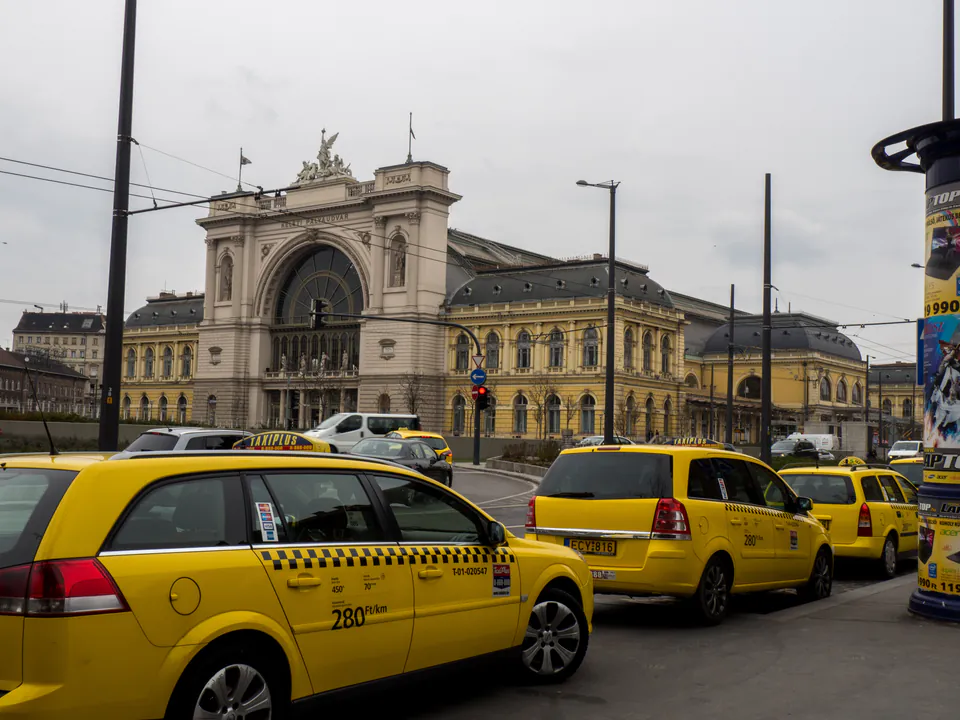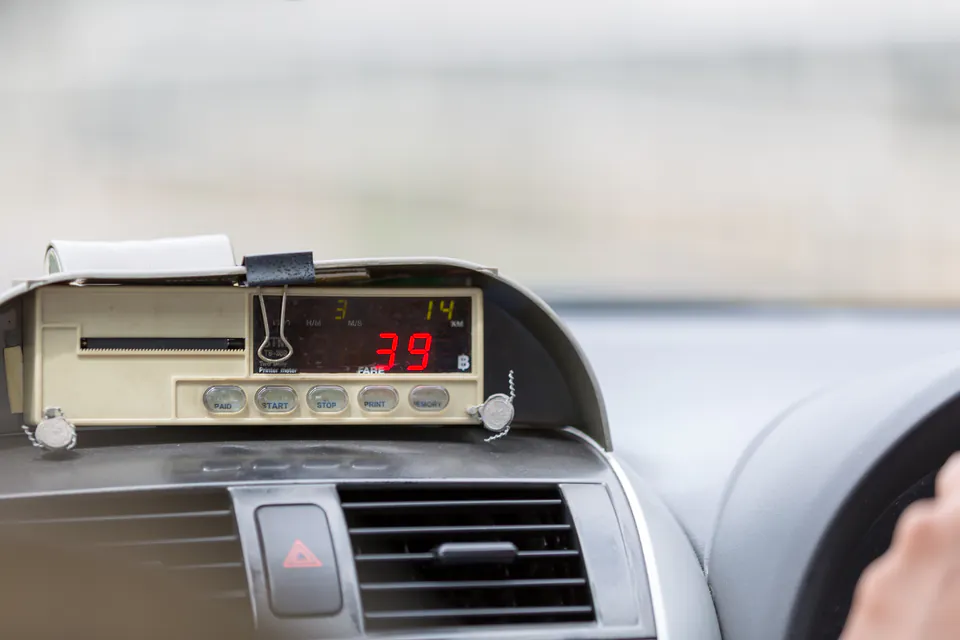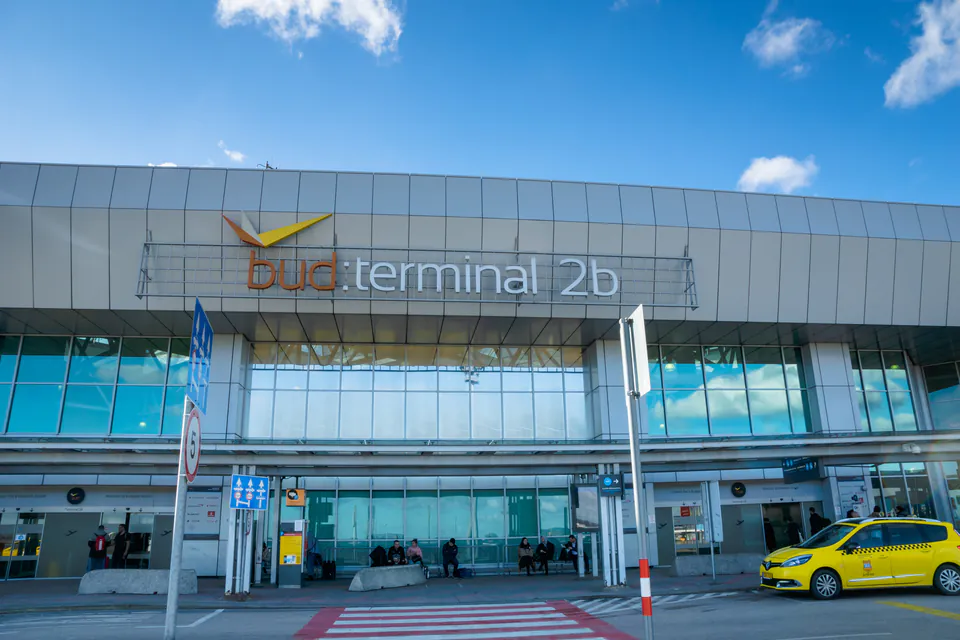Taxis and Ride-Sharing Services in Budapest
Getting around Budapest by taxi or ride-sharing is pretty easy once you know the basics. We've used everything from traditional yellow cabs to Uber and Bolt during our visits, and honestly, each has its place depending on what you need. If you're heading to Széchenyi Baths early morning or coming back late from the ruin pubs, having reliable transport options makes a huge difference.
The taxi scene here changed a lot recently. Uber came back in 2024 after being gone for eight years, which was great news for us and most travelers. Now you've got more choices, and that usually means better prices and service for everyone.

How Budapest's Taxi System Works
Budapest has pretty strict rules about taxis, which is actually good news for tourists. All the legal taxis are yellow and have "Minősített budapesti taxi / Licensed Budapest taxi" written on the front left door. You can't miss them. They also have yellow license plates and those lit-up taxi signs on top.
The pricing is standardized across all companies. Right now, you pay HUF 1,100 (about €3.10) just to get in, then HUF 440 (€1.25) for each kilometer. We love this system because there's no guessing about what you'll pay, unlike some cities where taxi prices can be all over the place.
The big taxi companies here are Főtaxi (they've been around since 1913 and handle all the airport runs), City Taxi with their modern fleet that's mostly hybrid and electric cars, and 6×6 Taxi. All these companies have apps now, but you can still call them the old-fashioned way if you prefer.

Ride-Sharing is Back in a Big Way
When Uber returned in 2024, we were pretty excited. They partnered with Főtaxi, so when you book through the Uber app, you're actually getting a licensed Főtaxi driver. It's a smart setup that gives you the app you're used to with local drivers who know the city.
Bolt has been the main ride-sharing app while Uber was away, and they've built up a solid reputation. We've used Bolt tons of times and rarely had issues. Their app shows you exactly what you'll pay upfront, tracks your ride, and works 24/7, including airport pickups.
Both apps are way better than trying to flag down taxis on the street. You can pay through the app, rate your driver, and share your trip with someone else. Plus, you know exactly when your ride will arrive, which is super helpful when you're trying to catch a train or flight.

Getting to and from the Airport
The airport is about 22 kilometers from downtown Budapest, and the trip usually takes 30-40 minutes depending on traffic. Főtaxi runs the official taxi service at both terminals, and they charge a fixed rate of around HUF 10,800 (€30) to get to the city center.
We like the airport taxis because you know exactly what you'll pay before you get in. They take both cash and cards, though we always bring some forint just in case the card reader is having issues, which happens sometimes during busy periods.
For ride-sharing from the airport, you need to go to a different pickup spot than the regular taxis. Both Uber and Bolt give you clear directions in their apps, usually sending you to the departures level instead of arrivals. It's an extra walk, but the wait times are often shorter and you don't need cash.
Airport Transfer Pricing Comparison
| Service Type | Cost (HUF) | Cost (EUR) | Duration |
|---|---|---|---|
| Official Airport Taxi | 10,800 | 30 | 30-40 min |
| Uber | 8,000-12,000 | 22-33 | 30-40 min |
| Bolt | 7,500-11,000 | 21-31 | 30-40 min |
| 100E Airport Bus | 2,200 | 6.20 | 30 min |

Staying Safe and Smart
Safety isn't usually a big concern in Budapest, but we always check a few things before getting in any taxi. Make sure it's yellow, has the proper signs, and the meter is working. Real taxi drivers will turn on the meter right away and give you a receipt if you ask.
With ride-sharing apps, we always double-check the car details match what's shown in the app. License plate, car color, make and model should all match. The app shows the driver's photo and name too. We also share our trip details with each other when traveling, especially late at night.
Don't get in unmarked cars or accept rides from people who approach you at tourist spots or the airport. We learned this lesson early on when someone tried to charge us triple the normal rate. Stick to official taxis or the apps, and you'll be fine.

Managing Costs and Getting Good Deals
Regular taxis have fixed government rates, so the price is the same no matter when you travel. That's pretty convenient for budgeting. But ride-sharing apps change their prices based on how busy they are. During rush hour, bad weather, or big events, surge pricing can make them way more expensive than regular taxis.
We always check both Uber and Bolt before booking because prices can be different. Sometimes one is much cheaper than the other, especially during off-peak times. Both apps show you the estimated cost upfront, so there are no surprises.
If you can plan ahead, some platforms give discounts for rides you book in advance. We've saved quite a bit doing this, especially for early morning airport trips when surge pricing might kick in.

Dealing with Language Barriers
Most taxi drivers don't speak much English beyond basic greetings and common tourist spots. We always write down our destination address in Hungarian or save it on our phone to show the driver. Having an offline map app helps a lot too.
Learning a few Hungarian words for directions is super useful. "Egyenesen" means straight ahead, "jobbra" is turn right, "balra" is turn left, and "megálljon itt" means stop here. Even if your pronunciation isn't perfect, drivers appreciate the effort and usually understand what you mean.
The ride-sharing apps solve most communication problems since everything is handled through GPS and the app. You don't need to talk much with the driver, though saying "hello" and "thank you" in Hungarian is always nice.

Special Situations You Might Face
Late-night rides (after 11 PM) can be trickier because public transport runs less frequently and everyone wants taxis. Expect to wait longer and pay surge pricing on the apps. We've learned to plan ahead for late nights out.
If you're traveling with a big group, you'll need to book larger vehicles ahead of time. Most taxi companies and ride-sharing apps have minivans for 5-8 people, but they cost more and take longer to arrive.
Travelers who need wheelchair-accessible vehicles can get them through several taxi companies, but you need to call ahead, usually several hours in advance. There might be extra charges, but the service is available.
Mixing Taxis with Public Transport
We've found the best approach is using both taxis and public transport depending on the situation. Taxis are great for early airport runs, late nights, or when you have heavy luggage. For regular sightseeing, the metro, trams, and buses are cheap and efficient.
The BudapestGO app from the city's transport authority is really helpful. It shows public transport schedules and connects to taxi services, so you can compare your options in one place.
During bad weather, major events, or when you're tired from walking all day, the extra cost of a taxi is usually worth it. Most people who visit Budapest regularly use a mix of both, and that's what we recommend too.
